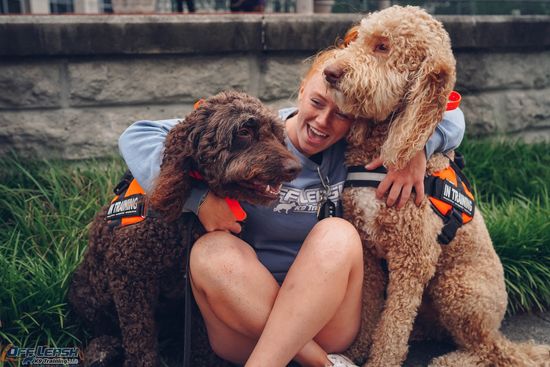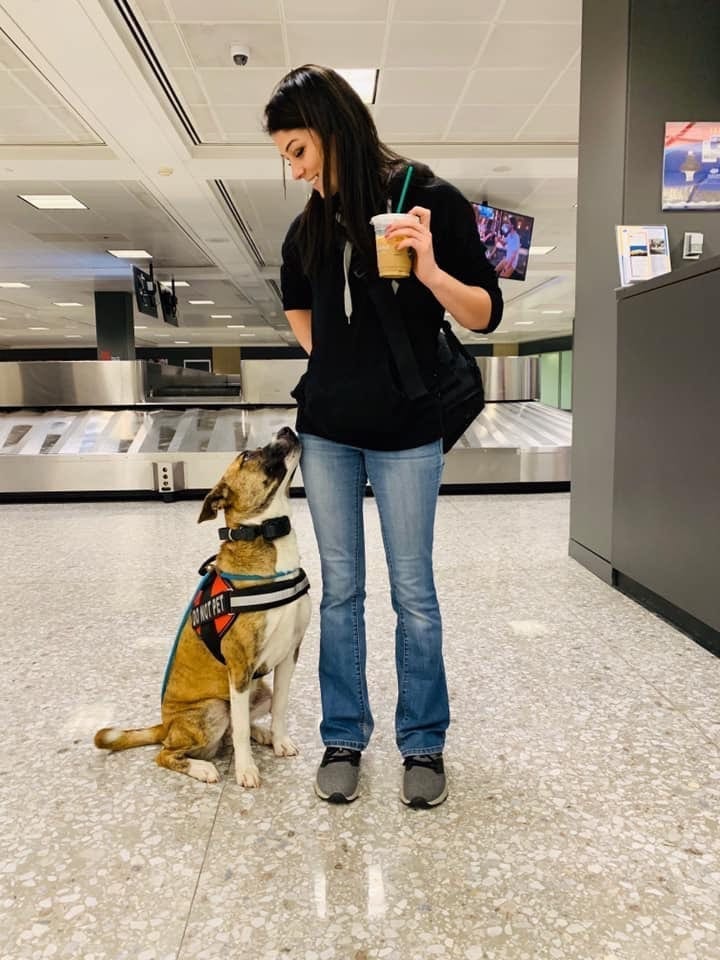Puppy Training Made Easy: Essential Tips for Raising a Mannerly Pup
Wiki Article
Explore the Various Types of Dog Training Available for Your Furry Pal
Recognizing the various types of canine training is important for boosting your canine friend's behavior and fostering a stronger bond. From fundamental obedience to sophisticated strategies such as dexterity and fragrance job, each training method provides unique advantages customized to both the dog's and owner's requirements.Fundamental Obedience Training
Basic obedience training lays the structure for a well-behaved pet, setting the phase for a harmonious relationship between pet and proprietor. This essential training concentrates on mentor pet dogs essential commands such as rest, stay, come, down, and heel. These commands not only enhance communication yet also advertise security in numerous environments.The training process typically starts with positive reinforcement techniques, where benefits such as deals with or praise are offered when the pet dog successfully adheres to a command. This approach urges a positive knowing environment, ultimately fostering trust between the proprietor and the dog. Uniformity is essential; regular practice guarantees that the pet dog preserves commands with time.
In addition, basic obedience training aids to resolve common behavior concerns, such as jumping, barking, or pulling on the leash. By developing clear boundaries and expectations, owners can lower undesirable actions and boost their dog's socializing abilities.

Advanced Training Techniques
Advanced training strategies build on the fundamental skills developed in fundamental obedience training, using a pathway to improve a pet's capabilities and responsiveness. These methods often include specialized commands and skills, allowing canines to perform tasks that need higher degrees of concentration and intelligence.One prominent technique is agility training, where pet dogs browse obstacle courses, boosting their physical coordination and mental intensity. This not only supplies workout yet likewise reinforces the bond between canine and trainer with synergy and communication.
An additional advanced technique is scent work, which faucets into a pet dog's natural olfactory abilities. This training motivates dogs to determine and locate details scents, boosting their emphasis and analytical abilities. Such tasks can be particularly beneficial for types predisposed to monitoring.
Service dog training is an additional crucial area, where dogs discover to assist individuals with specials needs. This training requires a high degree of obedience and specialized abilities tailored to the particular requirements of their handlers.
Therapy Approaches
Efficient pet dog training expands beyond showing skills and commands; it also incorporates therapy approaches that resolve undesirable behaviors. These methods are necessary for fixing issues such as aggression, too much barking, and separation stress and anxiety, making certain a harmonious connection in between canines and their proprietors.One commonly acknowledged method is positive reinforcement, which involves gratifying preferred behaviors to motivate their recurrence. This method is effective in strengthening good practices while reducing anxiety or anxiety in the pet dog. Conversely, aversive techniques, such as penalty or unfavorable support, are normally prevented by specialists due to their potential to develop anxiety and anxiousness, leading to more behavior problems.
One more vital approach is desensitization, which slowly reveals pets Get More Information to the stimuli that provoke unwanted behaviors in a regulated manner. This process assists dogs find out to continue to be calm and composed in situations that would generally trigger anxiety or aggressiveness.
Counter-conditioning is usually used along with desensitization, where the pet dog discovers to link positive experiences with formerly unfavorable stimulations. Both strategies require persistence and uniformity, making them efficient tools for accomplishing resilient behavior adjustment. By employing these behavior alteration methods, animal owners can promote a well-adjusted and delighted canine pop over to these guys companion.
Specialized Training Programs
In the realm of pet training, specialized training programs accommodate certain demands and objectives, providing tailored approaches that improve a pet's capacities and address distinct challenges. These programs are created for different purposes, including solution canine training, therapy pet prep work, and also competitive sporting activities training.Solution pet dog training focuses on gearing up pets with the abilities necessary to aid people with impairments, such as guiding visually impaired proprietors or informing to medical emergency situations. This training is strenuous and typically needs a mix of obedience, socialization, and certain task-oriented skills.
Treatment dog programs intend to prepare pet dogs for psychological support functions in healthcare facilities, colleges, and nursing homes. These dogs should show calmness, sociability, and a mild disposition, ensuring they can provide comfort to those in distress.
Additionally, competitive sporting activities training, such as dexterity or obedience tests, highlights fitness, accuracy, and teamwork between the canine and handler. These programs require a high degree of dedication and method, cultivating a strong bond while developing the pet dog's athletic abilities.
Enjoyable and Interactive Training Activities
How can pet training be page both satisfying and efficient? The solution exists in including fun and interactive training tasks that boost your pet's mind while enhancing essential skills. Involving your dog via play not just strengthens the bond in between you and your furry buddy however likewise boosts their learning experience.One effective way to attain this is through dexterity training, where canines browse barrier training courses that test their physical and psychological capabilities. This task motivates analytical and boosts coordination, making it a superb choice for active types. Another alternative is using puzzle toys that give treats, which can maintain your canine psychologically encouraged and engaged to learn.
In addition, including video games like fetch or hide-and-seek can make training sessions a lot more dynamic. These tasks urge the pet dog to react to commands in a fun context, promoting obedience while enabling social communication.

Conclusion
In final thought, different types of canine training are important for improving canine habits and promoting a strong human-animal bond. Discovering these diverse training alternatives outfits pet proprietors with the tools required to cultivate all-around, happy, and obedient companions.Understanding the various kinds of pet training is essential for boosting your canine friend's habits and fostering a stronger bond. From standard obedience to sophisticated methods such as dexterity and aroma job, each training technique offers special advantages customized to both the canine's and owner's demands.Standard obedience training lays the structure for a mannerly canine, setting the phase for an unified connection between pet dog and owner.The training process typically begins with favorable support strategies, where benefits such as deals with or praise are provided when the dog efficiently complies with a command.In verdict, numerous types of pet training are essential for improving canine habits and cultivating a strong human-animal bond.
Report this wiki page